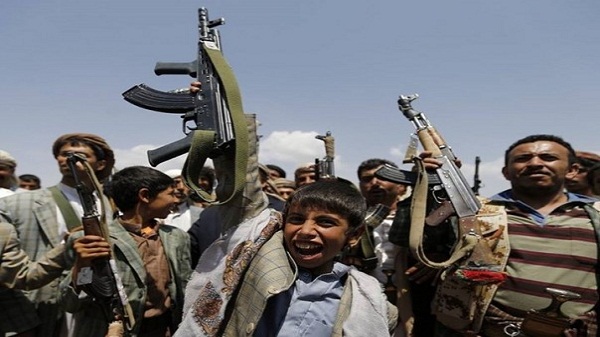Officials Remove Houthi Mines from Red Sea Mills Prior to UN Visit

Yemeni government's de-mining team dismantled four
explosive devices at the Red Sea Mills in Hodeidah hours before the arrival of
UN deployment team, World Food Program (WFP) and the international expert on
the international mine clearance program.

UN envoy General Michael Lollesgaard complained that Houthi militias are trying to hinder the redeployment plan in Hodeidah, stressing that he would send a letter to the United Nations in this regard.
During its visit to the mills, the de-mining team of the Yemeni Government participating in the International Mine Action Program confirmed there were four improvised explosive devices (IEDs), each weighing more than 80 kilograms, all of which were buried and connected by remote electric wires.
The team indicated that the IEDs were planted in piles of wheat, inside water tanks, on vehicles, in toilets, offices and other places.
The delegation was briefed on the safety and security of the facilities and its storage units containing tons of wheat. They confirmed that there were no obstacles to the implementation of the first phase of the agreement with the head of the International Monitoring and Redeployment Committee and the Houthi Militias Committee.
The UN de-mining team inspected the facility and then discussed with Yemen’s team the mechanism for removing mines and difficulties encountered during their work. They also talked about the number of mines removed, their types and forms, and the space and places they were found.
Head of UN’s team indicated that de-mining is going in accordance with a specific plan, noting that the most important obstacles and difficulties facing the teams lies in the manufacture of mines and the places they are planted, some of which were put in prohibited places, which caused the death and injury of several members of the teams due to lack of knowledge of dismantling method.

The head of Yemeni government’s team informed the international expert that 3000 mines and IED’s have been removed so far, pointing the number increases daily.
In other news, Houthi militias continue to obstruct UN envoy General Michael Lollesgaard Chairman from implementing the Hodeidah agreement.
Based on the minutes of the fourth meeting of the Committee, seen by Asharq Al-Awsat, General Lollesgaard said he would send a message explaining the reasons for Houthis' delay in implementing the agreement.
Lollesgaard did not mention the party which will receive the message, however, Yemeni sources said it was addressed to the UN, and in particular to the Special Envoy to Yemen, explaining that this statement came following the government's request to clarify why the first step of the first phase has not been implemented yet by Houthi militias.
The Stockholm Agreement is primarily aimed at improving the humanitarian situation, and its main task is to operate ports and open humanitarian corridors, General Michael told the government team.
He asserted that what matters is securing ports, regardless of who is authorized to run them, which the government team considered a hint that Houthis will remain as local security forces.







